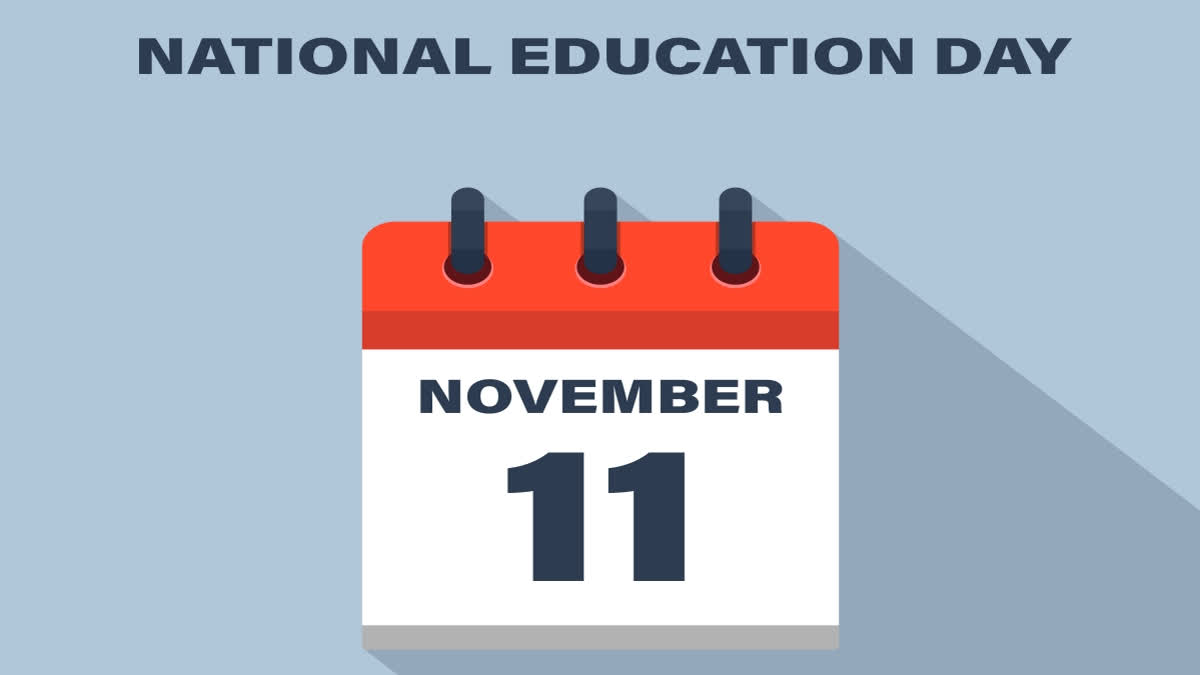Hyderabad:Education serves as the gateway to knowledge, fostering learning in various forms and it is the one that takes people beyond the schools. National Education Day, observed on November 11 annually, pays tribute to Maulana Abul Kalam Azad, a distinguished scholar, activist, and India's first Education Minister.
Maulana Abul Kalam Azad-Born on November 11, 1888, Bharat Ratna Maulana Abul Kalam Azad's contributions to education extended beyond his ministerial role, encompassing leadership in the Khilafat Movement, non-cooperation movement, and prolific writings such as "India Wins Freedom" and "Ghubar-e-Khatir."
Kalam's profound impact on education in India is evident in his role in establishing the Jamia Millia Islamia, the University Grants Commission (UGC), and Indian Institutes of Technology (IIT), among other institutions. Azad was a devotee of Gandhi's philosophy. He was also the President of the Congress Party from 1923 to 1940 and again from 1940 to 1945.
The essence of education lies in empowering individuals with knowledge, shaping their understanding, values, abilities, habits, and convictions. It extends beyond formal schooling, becoming a lifelong process of intentional and unintentional learning. Education plays a pivotal role in societal transformation, crime prevention, women's empowerment, poverty alleviation, and fostering peace.
Education in India-Today, India's education landscape comprises 15 lakh schools, 26.5 crore students, and 95 lakh teachers at the school level, while higher education boasts 43,796 colleges, 1,113 universities, and 11,296 stand-alone institutions. The literacy rate, as of the 2011 census, stands at 74.04%, with a notable increase from 2001, particularly among rural women. Kerala leads in literacy, followed by Delhi, Maharashtra, and Tamil Nadu.
Enrollment statistics indicate positive trends, with the Gross Enrollment Ratio (GER) showing improvements across primary, upper primary, secondary, and higher secondary levels.
Challenges in India- Challenges include a decline in the number of teachers and an average school dropout rate of 12.6% at the secondary level. While the overall dropout rate has reduced to 1.5%, the need for increased spending on education has to be taken up for priority. The spending on education should bring a situation where in every state in India, there is a healthy competition for children to get into state-run institutions right from school to higher education. The latest National Education Policy suggests the government should invest at least 6% of the country's GDP in improving infrastructure.
Use of EdTech-The advent of EdTech solutions have become increasingly pivotal. The COVID-19 pandemic has accelerated the adoption of digital learning and AI-based tools in schools, marking a significant shift in India's education sector. Embracing these technological advancements is crucial for shaping the future of education, ensuring accessibility, and meeting the demands of a rapidly changing world.
The observance of National Education Day not only honors Maulana Abul Kalam Azad's legacy but also prompts reflection on the current state of education in India. While progress is evident, addressing challenges such as dropout rates and insufficient spending remains imperative for fostering a robust and inclusive educational system that prepares individuals for the challenges of the future.
